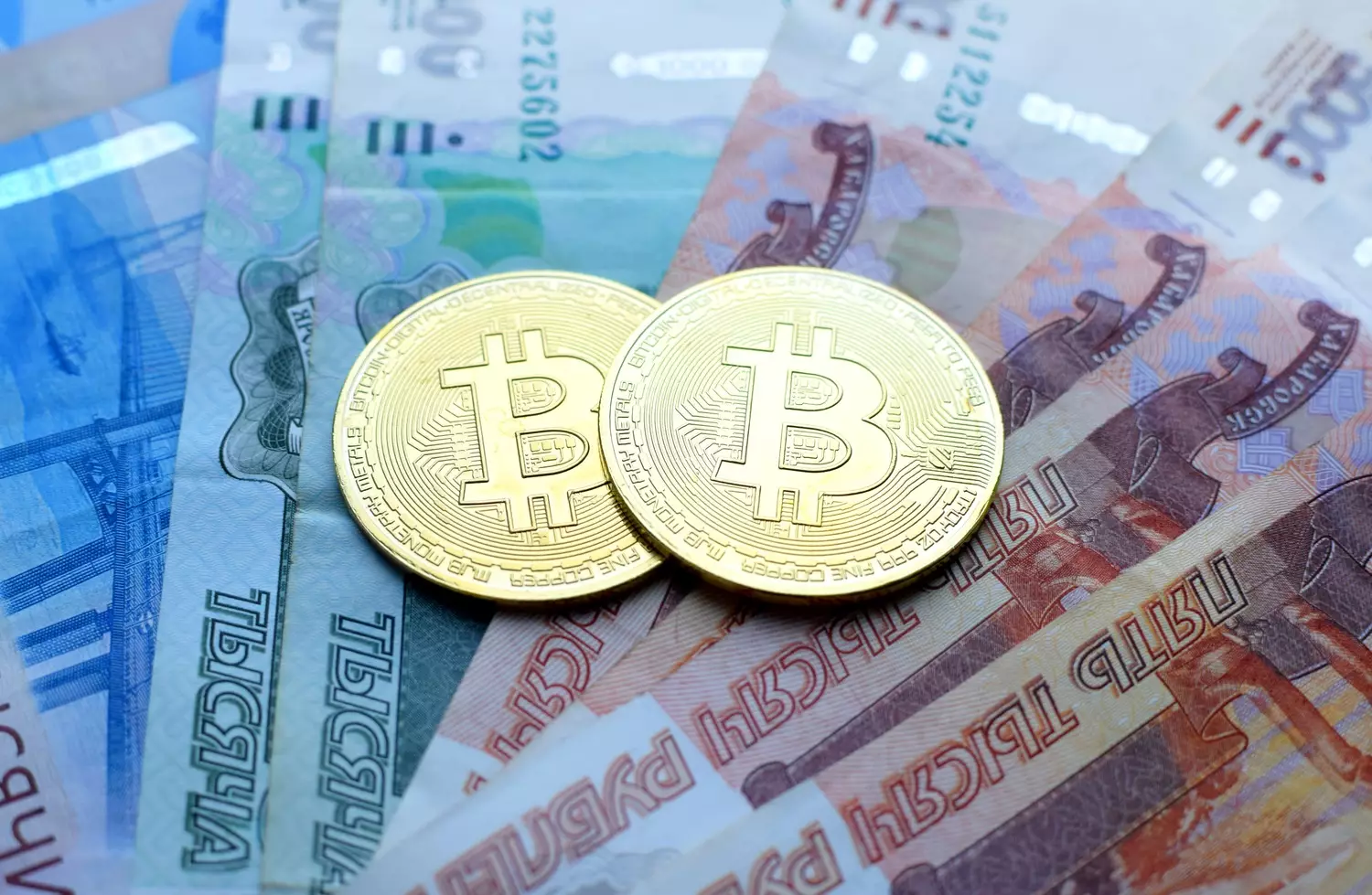Russia’s trade ministry recently announced the development of a tool that aims to assist crypto miners in evading Western sanctions. The Ministry of Industry and Trade claims that this tool will enable Russian businesses to conduct industrial mining activities and facilitate cross-border payments. While the details of the tool remain unclear, Anton Tkachev, the First Deputy Chairman of the State Duma’s Committee on Information Policy, Information Technologies, and Communications, suggests that the increased use of cryptocurrency could help Russian firms bypass Western sanctions when trading abroad. Tkachev believes that transactions made in cryptocurrency would be more difficult for Western enemies to track. However, it is important to note that within Russia, MPs still intend to prohibit the circulation of cryptocurrency.
Tkachev acknowledges that the future of cryptocurrency in Russia will be limited and conditional. He emphasizes that the Russian government does not intend to allow ordinary citizens to make purchases with crypto. Nevertheless, he believes that cryptoassets can serve as a valuable payment tool for international transactions between nations. The Russian government has been striving to de-dollarize the trade sector, exploring alternatives to the USD such as digital fiats and cryptocurrencies. Furthermore, Moscow aims to regulate the cryptocurrency market by establishing a specialized banking organization under the supervision of the Central Bank. This organization will oversee crypto deals and contribute to the development of a regulated crypto environment.
The Central Bank of Russia, led by Governor Elvira Nabiullina, has traditionally opposed crypto adoption in the country. However, there has been a slight shift in the bank’s stance, particularly concerning industrial mining and crypto-powered international trade. Nabiullina supports the sale of crypto miners’ coins abroad on overseas trading platforms. However, law enforcement agencies are concerned that this approach could open the door to money laundering. Despite such debates, crypto mining has experienced a significant rise in Russia, with the emergence of large-scale industrial mining firms like BitRiver.
Senior Russian politicians have recently expressed their intention to ban private citizens from mining cryptocurrencies. However, they intend to allow industrial miners to continue their operations. Lawmakers believe that mining should only be legalized for registered businesses or legal entities. There is a growing consensus among politicians that mining legislation should be fast-tracked, and industrial miners should be subject to taxation. Failure to implement such measures is seen as a missed opportunity for generating significant revenue for the Treasury. Despite this, progress has been slow, largely due to the Central Bank’s reservations and reluctance to fully embrace the Ministry of Finance’s more progressive approach. Many Russian miners support the legalization of their sector, emphasizing their willingness to pay taxes on their earnings.
Russia’s development of a tool to evade Western sanctions and facilitate cross-border payments through crypto mining could have profound global implications. By utilizing cryptocurrencies for international transactions, Russian businesses may be able to bypass restrictions imposed by Western countries. This could potentially reshape the dynamics of international trade and financial flows. As the world continues to grapple with geopolitical tensions and economic sanctions, the use of cryptocurrencies as a means to mitigate these challenges may become increasingly prevalent. However, concerns over money laundering and the need for effective regulation persist in ensuring the stability and security of the global financial system.
Russia’s trade ministry’s development of a tool to aid crypto miners in evading Western sanctions highlights the potential of cryptocurrencies in bypassing restrictions and facilitating cross-border payments. While the future of cryptocurrency in Russia remains conditional and limited, the government recognizes its value in international transactions between nations. The ongoing debates surrounding the regulation and taxation of crypto mining demonstrate the complexities and potential financial benefits associated with this industry. As these discussions continue, Russia’s approach to crypto mining and its impact on the global economy will undoubtedly be closely scrutinized.


Leave a Reply